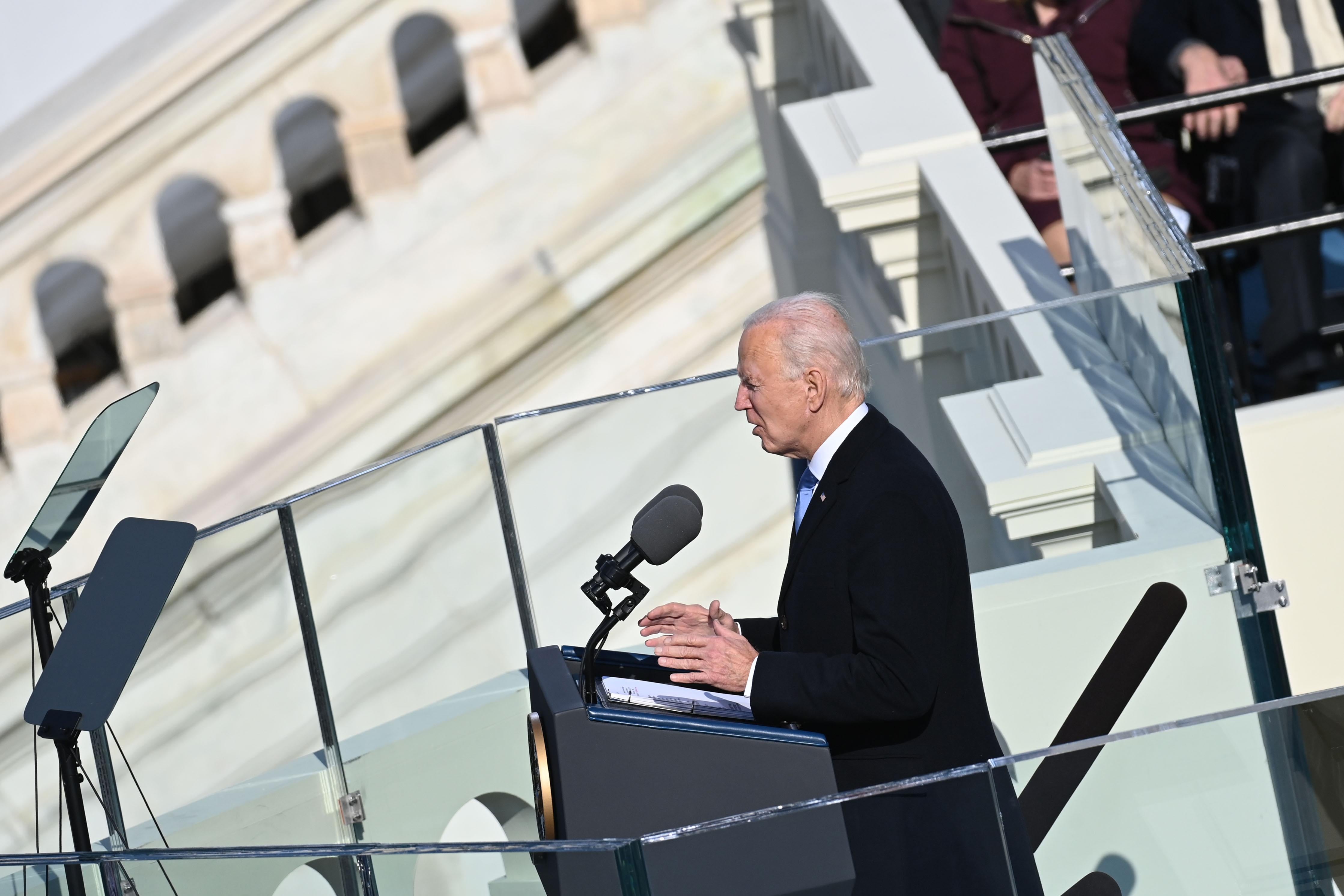President Joe Biden’s inaugural address contained a mere 74 words on the topic of foreign policy, and, under ordinary conditions, they would be seen as boilerplate, if they were noticed at all. But in the aftermath of the Jan. 6 insurrection and the four years of Trump that incited it, those words pose one of the greatest challenges Biden will face.
“So here’s my message to those beyond our borders,” the brief passage began.
America has been tested, and we’ve come out stronger for it. We will repair our alliances and engage with the world once again—not to meet yesterday’s challenges, but today’s and tomorrow’s challenges. And we’ll lead not merely by the example of our power but by the power of our example. We’ll be a strong and trusted partner for peace, progress, and security.
The problem, as Biden stressed in different contexts elsewhere in the speech (and as everyone in the world plainly sees), is that the “power of our example” has been drastically devalued. Some of our allies, especially in Europe and the Pacific, will return to our orbit with relief after Trump’s constant dissing and indifference because of “the example of our power”—the recognition that they could not defend themselves from attack without U.S. military leadership. But they will return with reluctance, suspicious of our reliability over the long haul, aware that America’s dark side—the thuggish nativism that has always lingered in our discourse but rarely swaggered forth with such dominance—might well reemerge in another four, eight, or 12 years.
In other words, our allies may not be so eager for “repair”—they might be skittish about embracing us as “a strong and trusted partner” for their security—unless Biden succeeds in his call to end our own “uncivil war.”
Back in July 2019, then-candidate Biden declared that, as president, he would organize and host “a global Summit for Democracy,” to “renew the spirit and shared purpose of the nations of the Free World.” Eighteen months later, it’s clear that the only such forum an American president has any business convening right now is a summit for democracy at home.
The only way Biden can rally other global leaders to join us in battling global challenges—pandemics, climate change, terrorism, and myriad sources of instability—is to demonstrate that the United States is a country worth following. The question, which is now more unsettlingly open than ever, is not just whether our democratic values are worth emulating but whether our democratic government can even function.
This is the question Biden posed in much of the rest of his often-stirring speech. With his usual optimism, he answered in the affirmative. (“We have never, ever, ever, ever failed in America when we’ve acted together,” he said for the umpteenth time in his career.) But he knows he will need to inspire, persuade, or neutralize many Americans—including Republican lawmakers—who followed Trump down the grievance-strewn path to disunity and dysfunction. And he must know that many allies and adversaries have doubts that he can do this.
If the United States can no longer be trusted as a dependable ally or admired as a model of governing, then those beyond our borders will seek other allies and other models. And then America’s strength and possibly democracy’s future—which have always depended on alliances, a fact that Trump never understood—will diminish.
Biden’s call for civility and competence is, most obviously and urgently, a matter of life or death for hundreds of thousands more Americans who might fall prey to the coronavirus. It’s a matter of a livelihood or poverty for millions who are suffering from the economic fallout. It’s a matter of justice or continued indignity for those long victimized by racial discrimination. But it’s also, for years or decades to come, a matter of national security.

